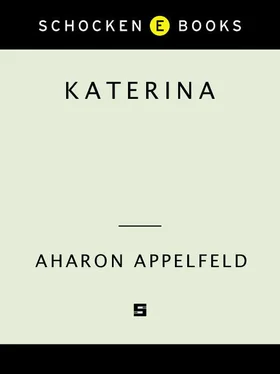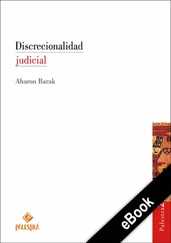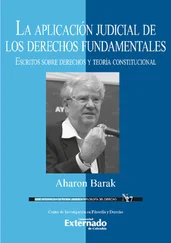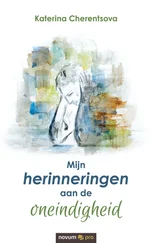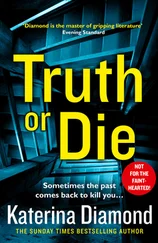Is theirs a good life? Are they happy? I asked myself more than once. “A person should do his allotted task and ask for no reward,” the lady of the house once told me. Still they aspire to greatness. They don’t deprive themselves of the pleasures of this world, but there’s no avidity in seeking them. The Jews keep taverns, but they themselves don’t get drunk.
Not only was I observing them, it appears. They too watched my steps closely. They noticed, for example, that I didn’t go out to have a good time on Saturday nights. The lady of the house was content, but she didn’t express her approval in so many words. Direct speech isn’t common with them.
My loveliest hours were spent with the boys. Boys are boys; though it’s true they have an extra dose of cleverness, they’re not spirits.
After a few months I gave in to temptation and went back to the tavern. My acquaintances were astounded: “What’s the matter with you, Katerina?”
“Nothing at all.” I tried to apologize.
Nevertheless, something within me had changed. I had a couple of drinks, but my spirits didn’t soar. Everyone around me, the young and the not so young, looked coarse and clumsy to me. I kept on drinking, but I didn’t get drunk.
“Where are you working?”
“With the Jews.”
“The Jews are having a bad influence on you,” a young woman said to me.
“I have no other work.”
“You could join me. I’m working in a canteen.”
“I’m used to it already.”
“You mustn’t get used to them.”
“Why?”
“I don’t know. They have a bad influence. After a year or two a person starts making their gestures. I knew a girl, a good friend, who worked for the Jews. After two years she lost the look of a healthy person. Her face got pale, and her movements had no freedom—a kind of trembling of the jaws. Our life is different. I wouldn’t work for them for any amount of money.”
I won’t hide the truth. At that time I felt a strong attraction toward the master of the house. I don’t know what aroused me—his height, his pale face, his prayers in the early morning hours, the coat, or perhaps the footsteps at night. My young body, which had known disgrace and pain, was aroused. In secret, I waited for the night when he would approach my bed.
Apparently, the Jews are very sensitive. Without saying a word, the lady of the house kept me away from the kitchen at mealtimes, and on the Sabbath I wasn’t permitted to be in the dining room. The distance didn’t blunt my desire. On the contrary, it intensified. In the village I had been drawn to the shepherd, and in the city the boys had lusted for my flesh and devoured it. This time it was a different desire. But what could I do, bite my own flesh? Had I had the courage, I would have gone to the priest and confessed, but I was afraid the priest would reproach me and impose fasts and vows. I didn’t then understand that my desires were rooted: Imperceptibly, I had become bound up with the Jews.
My friends at the tavern were right: The Jews have a quiet power to charm. When I first came to their house, it had seemed that they were turned inward and gloomy and that they took little interest in strangers. Sometimes they seemed stooped, as though pervaded by depression. And sometimes arrogance flashed from their eyes and I didn’t seem to exist. But after two years of service a change took place. Waves of stares began to touch me; first I felt it with the children, and later with the lady of the house. They aren’t indifferent, it turned out. But my dreams in those days were shamefully wild. I know that dreams speak vainly. Nevertheless, their power was evil and great. In my dreams it was only I and the master of the house sitting at a table, drinking glass after glass. His touch was not like the Ruthenians’. He caressed my neck gently. So it was, night after night.
I had other dreams too, harder to bear than those, that would terrify me like the sights of the church on fast days. In my dreams, I saw a flock of Jews standing at the mouth of a pit. Strong lights were aimed at them, but they stood their ground, not moving. We have killed Jesus once and for all, and we won’t permit his resurrection; their eyes were furious. The strong lights kneaded their flesh, and they stood their ground, as though they had become a single mass, blocking the entrance.
These sights have not been erased from my memory. Even today I remember them with great clarity. In those dreams I knew all my sins. Not only had I left my ancestors and their land, I had abandoned my daughter and, to add insult to injury, I was living among those who had raised their hand against God and His Messiah. I knew that my punishment would be too heavy to bear, not only in the world of truth but first of all here too, on this earth.
I considered abandoning the house and going wherever my legs would carry me, but I was weak, afraid, and everything around me seemed alien and neglected. My friends in the tavern didn’t let up: “You must leave those accursed people.” “It’s better to starve.” “You don’t know what they’ve done to you.”
“A lot of people work for the Jews.” I tried not to get upset.
“But you’ve changed.”
“They don’t do me any harm.”
“You don’t know. They work silently, secretly. They change you from the inside. Those fiends are clever and smart, and one day you’re going to get up, and you’ll see: You’re tainted with Jewish leprosy. What’ll you do? Who’ll take you in? No young fellow will want to sleep with you. Where will you go then? Where?”
They rebuked me in that manner.
In the end they were right: Fear gradually overcame me. Not a distinct fright but a dread that gnawed from within. I kept working, eating, and sleeping, but everything I did was tinged with fear. More than once I saw with my own eyes the whirling sword over my head.
One night I left the house and ran away. It was the end of October. The cold and the darkness blew through the empty streets. I felt I was losing my mind, and I could do no more. Fear drew me inward, into the tunnels of damp and cold. After walking for an hour I felt relief. My feet were wet and my body was cold, but I wasn’t sorry. Joy suffused me, as though I had been released from prison.
The tavern was locked that night, so I headed toward the railway station. At the station I didn’t find anyone I knew. A few drunks were lying in the corners, grunting merrily. For a moment I wanted to join them in a drink.
“Why don’t you come over to us, it’s warm here,” one of the drunks called to me. I knew that was no summons from on high but an earthly call, clumsy and evil, but I was still glad to hear the Ruthenian language, my mother tongue. I stood where I was and drew no closer.
“Come over to us, and we’ll have a drink. Where do you work, darling?”
“For the Jews,” I said, and immediately regretted that I had revealed my secret.
“Damn them, it’s good you left. Liberty is as necessary for us as the air we breathe.” That sudden, coarse contact with my mother tongue brought a thrill of pleasure to my body. They grunted, shouted, and whinnied out loud. As though by enchantment, those clumsy noises reminded me of the tranquil meadows of my native village, of the water and the isolated rows of trees planted on the broad plain and scattering shadows with a generous hand.
Only now did I realize how detached I had become from the good soil, from my late mother, from the light of grace that had encircled me in distant days. The drunks seemed to guess what I was thinking, and they called out again: “It’s good you left those cursed ones. It’s better to go hungry and not take shelter under their roofs.”
Now I knew clearly what they were talking about. In that neglected, filthy place, which everyone called the central railroad station, I felt for the first time that a Jewish mood had penetrated my bones and destroyed my joy in life.
Читать дальше
